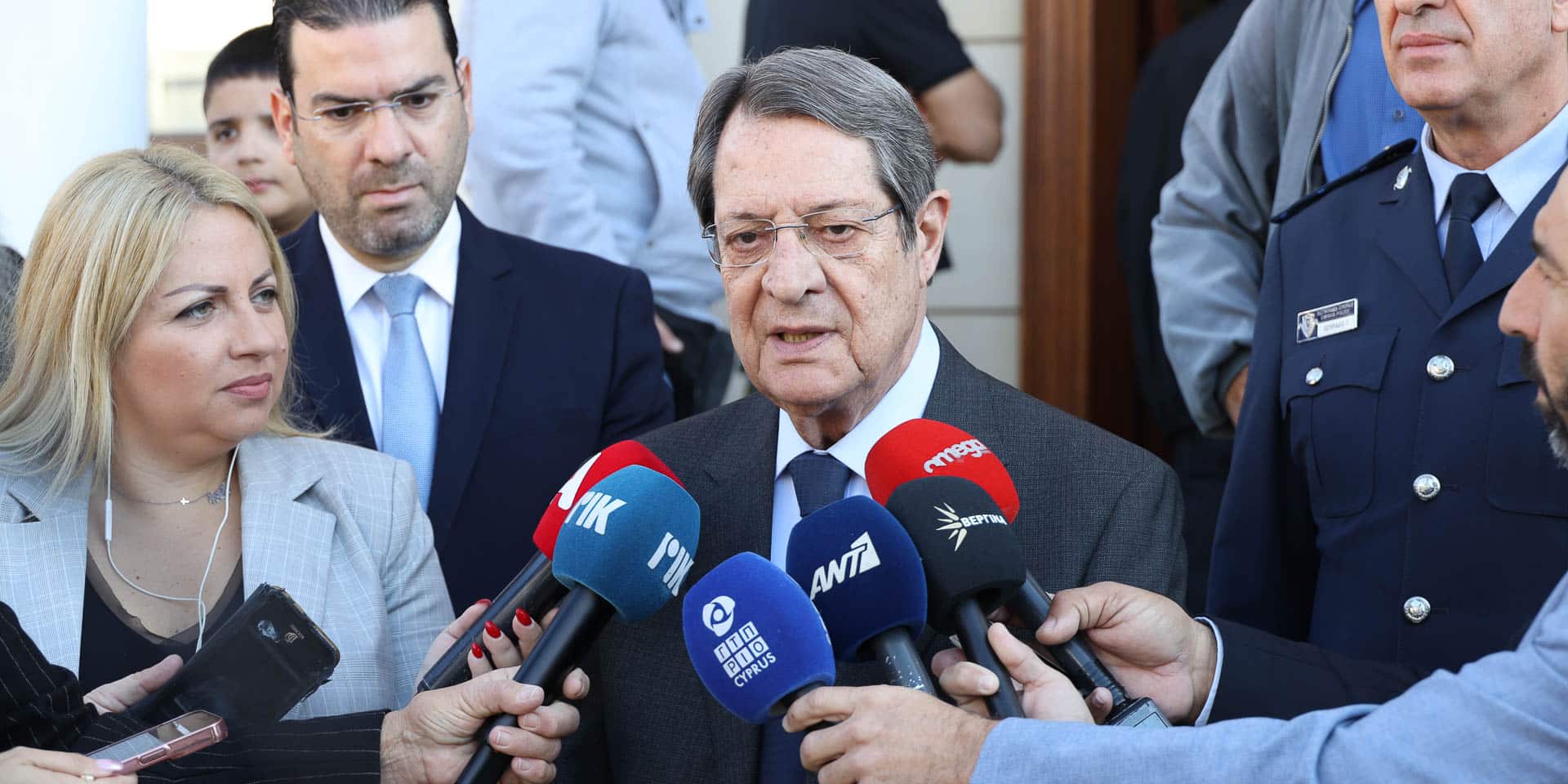Former president Nicos Anastasiades issued a statement on Friday, welcoming the decision of the Authority Against Corruption to investigate serious allegations of corruption made against him in a book by journalist Makarios Drousiotis, titled Kratos Mafia (Mafia State). In a statement he issued, Anastasiades reminded that he had written to the head of the Authority, Haris Poyadjis, at the end of last year, asking him to carry out an investigation of the allegations as soon as possible.
The news was heard with “particular satisfaction” by Anastasiades who has denied the allegations, said he would fully cooperate with the investigators so they would arrive at their own safe conclusions. He also said that he “consciously avoided taking a position on all that was obsessively and calculatingly relayed by some, on a daily basis, in order to establish as true all that was maliciously and slanderously contained in this book.”
His anger is understandable, because since leaving office, the accusations of corruption, sleaze and conflict of interest have increased dramatically, especially on social media where posting contemptuous comments about the former president is rampant. There is no way of silencing people on social media, but Anastasiades is probably more concerned about the way public opinion has turned against him and no former president would want to be remembered for corrupt practices.
The decision to assign the investigation to foreigners was the right call by the Authority Against Corruption, in one sense, because there is less chance of being influenced by outside factors. That they will not be familiar with the way things work in Cyprus could be a drawback. According to a press report, Greece-based lawyers who were approached declined to undertake the investigation, but because the book will soon be published in English, the Authority will have a much bigger pool to choose from.
Which parts of the book the investigators would focus on, given the host of damning allegations, ranging from abuses of power to self-serving decision-making, against Anastasiades, nobody knows. It is unlikely everything will be investigated, and the Authority has met the author of the book to discuss the terms of reference of the investigation and the latter has offered to provide the Authority with documentation backing his accusations. Poyadjis, said on radio, that for some of the subjects covered it was not in the Authority’s remit to obtain the necessary information.
Even an investigation of some of the corruption allegations made against Anastasiades is to be welcomed. It could help restore some public confidence in the idea of the rule of law and the democratic principle that nobody is above the law. There is the danger, however, that it would not do this, but we will worry about this if and when it happens.







Click here to change your cookie preferences